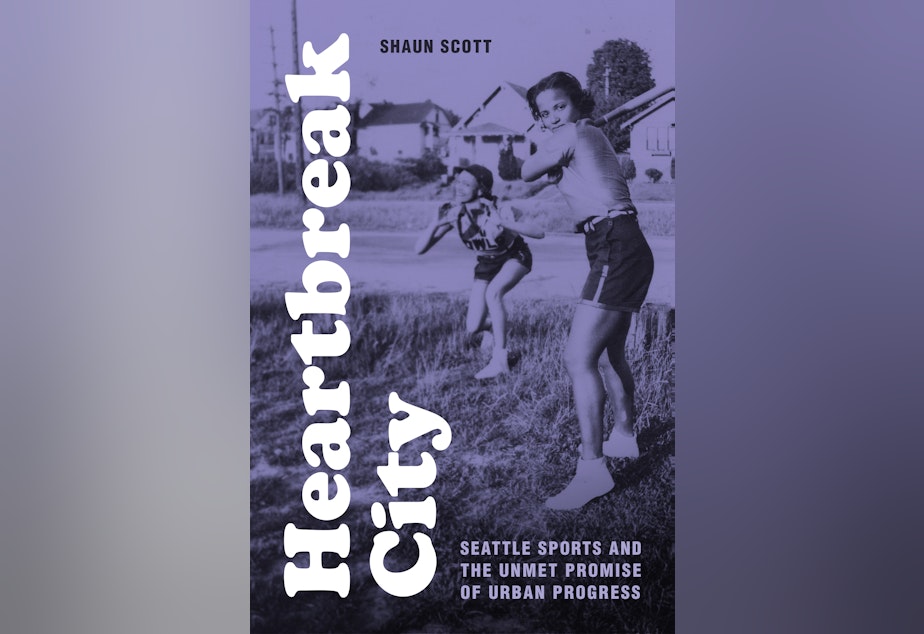In 'Heartbreak City,' Seattle sports are a product of its politics — and vice versa

For many, the spheres of sports and politics are totally separate arenas: one is a fun and low-stakes pastime, the other is a struggle for real-world power.
But in his new book, “Heartbreak City: Seattle Sports and the Unmet Promise of Urban Progress,” author Shaun Scott makes the case that sports and politics have more in common than meets the eye.
Going back to the city’s early roots, "Heartbreak City" traces the stories of athletes and activists who made Seattle an athletic and political powerhouse.
"People watch and enjoy sports not to forget about our politics, but in a lot of ways, to feel better about them," Scott said.
For him, sports are at the root of Seattle's civic identity. Originating in the frontier mentality of hard work and perseverance, Scott said early Seattle turned to sports — specifically the "Seattle Alkis," its early baseball team — to fight of feelings of inferiority.
At the time, Seattle was in a race with Olympia and Tacoma for a railroad terminus in what would become Washington state, and the Seattle Alkis' early victories over its regional rivals gave the city a sense of triumph.
"There's kind of an instant gratification that people are still searching for in our sports as a way of achieving ... what we have more difficult time achieving a politically and socially economically," Scott said.
At the same time, Seattleites found an affinity for sports practiced by the Coast Salish peoples, which included outdoor activities like running, walking, and canoeing. As the city grew, it gained the reputation of being a quaint, provincial town in the Pacific Northwest — a contrast with the growing metropolises of New York, Boston, and Chicago. The construction of parks and playfields was something Seattle saw as fundamental to the identity of a "city," and the importance of communal sporting events helped to foster progressive ideals in the political sphere.
Sponsored
But by the 1920s, athletics became a tool for division. In 1918, the city hosted a Ku Klux Klan baseball team, which played its games in town. At the same time, Black Seattle baseball teams played games against the Seattle Police Department, and against prison guards at the Monroe Reformatory.
When a 1924 zoning code began to segregate the city, golf courses and exclusive country clubs were built to segregate public spaces as well.
"I think you see sort of the athletics is really a contest between groups that have more power, those that have less," Scott said.
Throughout the book, Scott tells the story of a multitude of Seattle sports figures through time, including swimmer Helene Madison, Seattle mayor Bertha Knight Landes, and the Seattle Owls, a softball team of all Black women who went on a series of local championship runs.
From the SuperSonics to the Storm and Seahawks, the political choices behind the additions and departures of major sports league franchisees reflects a city that has constantly weathered heartbreak, but continues to finds perseverance.
Sponsored
"It's like you're almost looking at the past, but you're also looking into the future in a lot of ways as well," Scott said. "There's a timelessness too — I think sports is a symbol of resilience for beleaguered communities in the city that I wanted to make sure was highlighted."
Listen to the full Soundside interview with Shaun Scott by clicking "play" on the audio button above.





